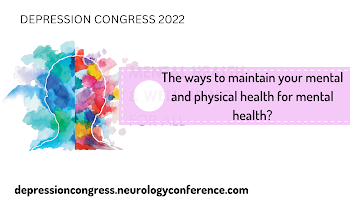The ways to maintain your mental and physical health for mental health?
The mental health of people has suffered as a result of the COVID-19 pandemic. The COVID-19 pandemic has caused stress in people from all walks of life, including frontline workers who are overburdened with work, young people who cannot attend school, family members who are split up, those who have been infected with the virus or who have lost loved ones, and those with pre-existing mental health conditions who have trouble accessing mental health services during lockdowns.
It is reasonable to have fear, anxiety, or a sense of
helplessness at this moment in history. However, you have the ability to take
care of your mental health and wellbeing no matter what situation you are in or
where you are in the Pacific. Here are six strategies you can use to cope with
stress-inducing situations, including the COVID-19
epidemic.
1. Consult a reliable source.
Talking to someone you trust – whether a friend, a family member or a colleague – can help. You may feel better if you are able to openly share what you are going through with someone who cares about you. If you live in an area where face-to-face interactions are limited, you can still stay connected with your loved ones through a video call, phone call or messaging app.
2.
Take
care of your physical well-being
Maintaining good physical
health also enhances your mental health and general well-being. Be active for at
least 30 minutes every day, whether that be through cycling, gardening, yoga,
dancing, running, or any other form of exercise. Consume a nutritious,
balanced diet. Don't forget to get enough rest.
3. Engage in activities you enjoy
Try to keep doing the things that make you happy and fulfilled,
including making meals for yourself or your loved ones, playing with your pet,
going for walks in the park, reading a book, or watching a movie or TV show.
You can maintain good mental health by following a regular schedule that
includes enjoyable activities.
4. Keep dangerous substances at a distance.
Avoid using dangerous substances like kava, alcohol, narcotics,
or smoke to deal with your emotions. Even while they can appear to make you
feel better right away, these things can really make you feel worse over time.
These harmful substances increase your risk of getting sick or hurt, as well as
the risk to people around you.
5. Spend two minutes concentrating on your surrounding
By re-establishing your connection to the present, you can help yourself become free of the thoughts that are racing through your head. Take three slow, deep breaths, firmly ground yourself to the earth with your feet, and then ask yourself:
What five things do I notice?
What four things am I hearing?
What do I smell?
• How does it feel to touch my knees or
another object within my reach? How does it feel when my fingers are on it?

.png)

Comments
Post a Comment